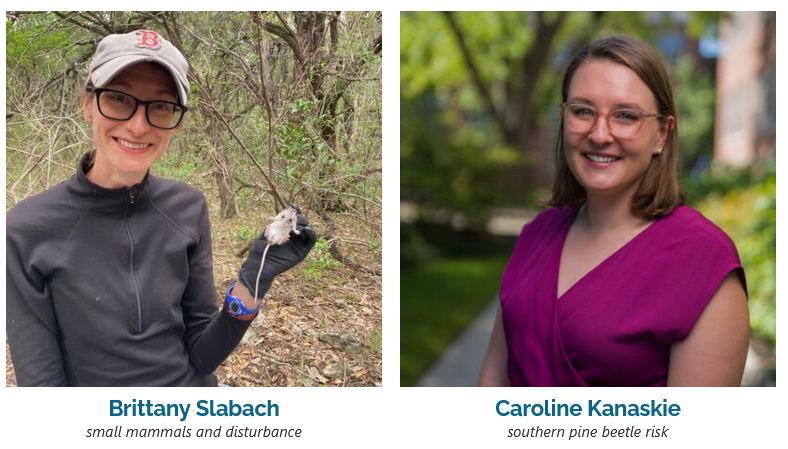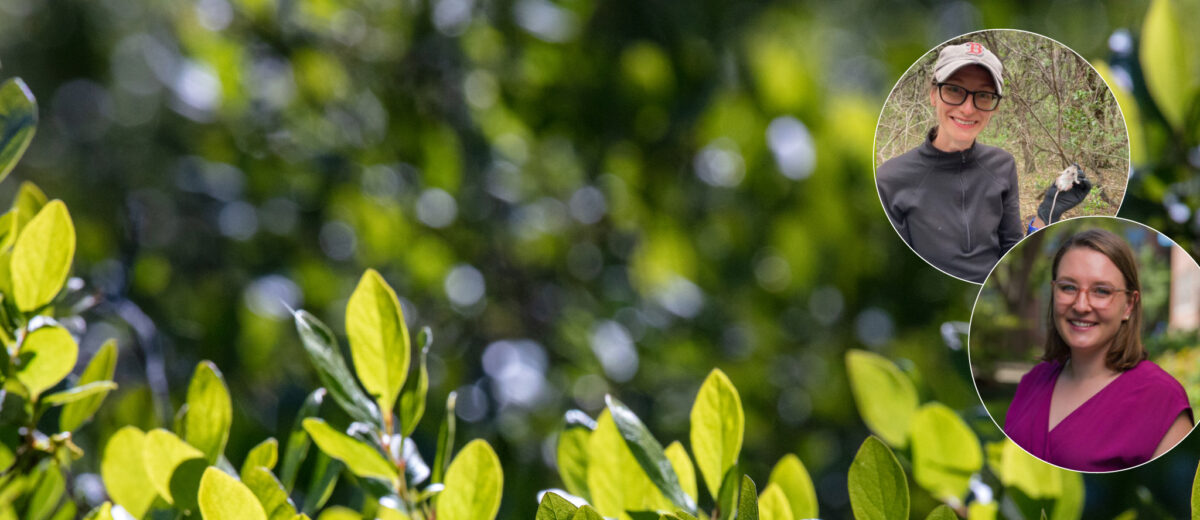New research on southern pine beetle, small mammals in Acadia National Park
Two scientists have been awarded fellowships to conduct research in Acadia National Park as part of Second Century Stewardship, an initiative of the National Park Service, Schoodic Institute at Acadia National Park and the National Park Foundation.
The new awards will support research to inform management of forests and wildlife in Acadia and other national parks. The new studies will assess risk of trees to future southern pine beetle outbreaks and understand impacts of visitor interaction and other disturbances to mice, voles, and other small mammals in the park.
The 2023 Second Century Stewardship Fellows are:
- Caroline Kanaskie, a Ph.D. candidate at University of New Hampshire
- Brittany Slabach, a lecturer of biology at Trinity University
Like many national parks, Acadia is experiencing rapid changes including warming temperatures, shifts in plant and animal populations, and altered weather patterns. The impacts of these changes are not fully understood, challenging the National Park Service to manage and protect both natural and cultural resources. Such management activities could have unintended consequences, however. Studies by Second Century Stewardship fellows and other research partners can expand the capacity of the National Park Service to understand environmental change in parks, and evaluate options for responding.
Schoodic Institute has awarded 20 fellowships since 2016.
“Second Century Stewardship has helped to attract the top-notch scientists we need to help us understand how to respond to unprecedented environmental changes happening in national parks,” said Acadia National Park Superintendent Kevin Schneider. “The fellows’ research has been essential to informing our recent management actions in Acadia.”
“The research of this year’s fellows underscores both the rate of change happening in Acadia and the implications of human and natural disturbances. We are excited for this year’s fellows and the management-relevant research they are undertaking,” said Schoodic Institute President Nicholas Fisichelli.

More about the fellows and their research:
Brittany Slabach studies how landscape ecology and park management affect small mammals, which are recognized as indicators of ecological change because of their roles as prey for other animals and dispersers of plant seeds. In her research elsewhere, Slabach has found small mammals tend to occur in isolated areas away from areas that are frequented by visitors and undergoing “active management,” such as forest restoration. Using live traps and wildlife cameras, Slabach will conduct surveys of small mammals at sites in Acadia experiencing different types of disturbance. In addition to providing more information about the populations of small mammals that live in Acadia, the research will help managers understand the effects of different types of human activity on park wildlife.
Caroline Kanaskie recently documented the first known Maine occurrence of the southern pine beetle, which because of warming winters can now establish and persist farther north than ever before. Southern pine beetle can kill large numbers of healthy pitch pines in “outbreak” conditions, and represents a threat to Acadia’s unique pitch pine woodlands. Kanaskie will measure documented risk factors for southern pine beetle outbreaks as well as temperature to provide information about whether conditions, especially winter minimum temperatures, are suitable to the survival of southern pine beetle in Acadia. She will also survey pitch pines in Fire Island National Seashore, where outbreaks have already occurred, and Cape Cod National Seashore, where the beetle is present. Her goal is to help parks prepare for and respond to the presence of southern pine beetle in the future.
